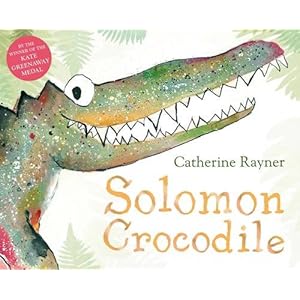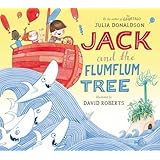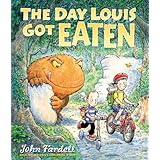Great excitement at school on Friday: the P1
bookbug bags arrived.
It was the end of Scottish Book Week, and here, where we still get free books given to every child every year from birth to five, they dished out three crackers to L and her classmates, whose front covers you can see in this post. I honestly can't tell you which I like best. They're all awesome. If you're looking for a book to give a five year old this Christmas, you won't go wrong with any of these.
But they also gave us
Jordan's new Jaiket.
First line:
Jordan wis in his bed sleepin. He wis in the middle o a braw dream.
And I have removed it from L and told her she's not allowed to read it.
It's not a Scottish literature thing, obviously. The three fantastic books which illustrate this post are all written by Scottish (or Scottish based) authors and I couldn't be more delighted with them.
But it is a Scots thing.
For a start, I don't happen to think Scots is a language. Now, technically, there's no fixed definition of what's a language, what's an accent and what's a dialect. But if we assume that a dialect is somewhere between a language and an accent, I reckon Scots is a dialect. Or, indeed, a vast number of different dialects which are markedly different if you live in Stornoway, Stranraer or Selkirk. Indeed, people (or indeed
folk) from Selkirk, a grand 20 miles away from where I sit, speak a completely different version of Scots from those in Hawick, or Galashiels, or Duns, each of which is less than 20 miles from the others.

So if L reads, or has read to her (although not by me, because I'd mangle it),
Jordan's new Jaiket she's not hearing anything that really resembles the words, accents and turns of phrase she hears out and about.
The introduction to Jordan's new Jaiket, written, obviously, not in Scots, says:
Learning about Scotland helps children to develop a sense of who they are and their place in the world[...]. Exploring Scots language is an iimportant part of this learning.
Of course it is. I couldn't be more delighted for my children, and all other children wherever they are raised, to be given an real sense of the local culture: the literature, art and music, the dialects, architecture and landscape. I want my children to appreciate the works of Robert Burns, John Buchan, James Kelman or Irvine Welsh (but not Walter Scott, because (
whisper it) it's incredibly dull).
But not yet. Not now.
L is five. She is just on the cusp of learning to read and write, an explosion of literacy that is going to open up to her worlds of imagining and information. She, and I, are so excited by this. She can't get through her bedtime story at the moment without stopping me to read out words or sentences she has recognised, or to point to a punctuation mark and ask what it is and what it's doing.

So when she picks up
Jordan's new Jaiket, and reads, in her voice which still has more than an echo of three formative years spent in southern England,
"Jordan was in his bed sleeping", she is undoing all the hard work her teacher has put in, teaching her to recognise that
was is spelt with an
a and
ing makes the sound, and has the grammatical function, it does (although obviously she wouldn't express it like that), in whatever accent you choose to say it.
Wherever you stand on the importance (or indeed existence) of the Scots language, at this stage, L, and all the other P1 children who were given this book, are being taught to read and write English, and it is in English that they will go on to read the vast majority of books, textbooks, exam papers, magazines, newspapers or advertisements. Tacitly, the writer and publisher of
Jordan's new Jaiket (which is, incidentally, a rubbish story - Jordan can't find his new jacket because his sister has put it on her snowman) know this, else why write the blurb in English?
L's school has a Burns competition. Each year around Burns night, the older children are encouraged to learn a Burns poem and to recite it in front of their classmates and the school. I dearly hope she will take part and I'd love her to be able to do so with a swagger and a swing of Scots conviction. But by that stage she will be older. She will be reading and writing fluently in English, and regularly hearing the local dialect of Scots. She will have the knowledge and sophistication to recognise and understand the differences and to know that what is correct in one is not in the other.
But now, at five, she's not. And to confuse her, or her classmates, is
jist wrang.
*With apologies to the shade of Robert Burns.
.JPG) But anyway, the world didn't end. Which is nice, because it's my birthday today, and it'd be a shame to have missed that.
But anyway, the world didn't end. Which is nice, because it's my birthday today, and it'd be a shame to have missed that.





.jpg)
.jpg)













.JPG)



.JPG)
.JPG)



















